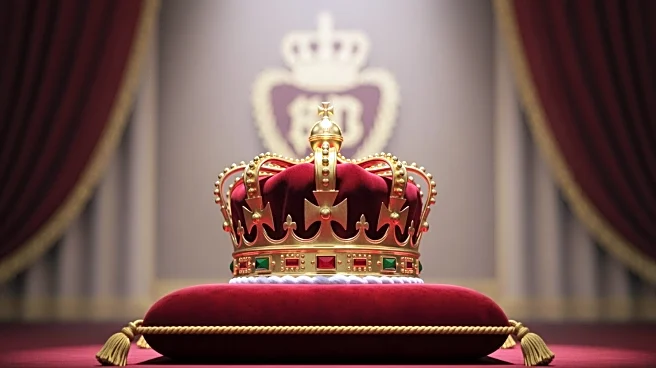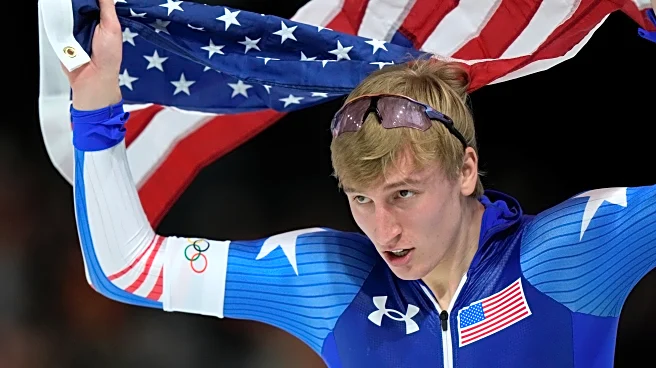What's Happening?
Mark Guiducci, the new editor-in-chief of Vanity Fair, has reportedly instructed his staff to provide favorable coverage of Princess Beatrice and Princess Eugenie, daughters of ex-Prince Andrew. This directive comes amidst ongoing scrutiny of their father's
ties to the late Jeffrey Epstein. Guiducci, who succeeded Radhika Jones, is said to have questioned the relevance of including the princesses in a Vanity Fair story about their father's controversial associations. The magazine's September issue included a piece by Erin Vanderhoof that mentioned the princesses only in passing, following Guiducci's intervention. Vanity Fair has denied altering the story's references to the princesses, maintaining that the published content remains unchanged from the draft. The magazine has also faced criticism for its perceived deferential tone towards celebrities, a strategy reportedly influenced by Guiducci's extensive social connections.
Why It's Important?
This development highlights the complex interplay between media coverage and personal relationships within the industry. Guiducci's approach raises questions about editorial independence and the potential influence of personal connections on journalistic integrity. The decision to soften coverage of Princess Beatrice and Princess Eugenie could impact public perception of Vanity Fair's credibility, especially given the sensitive nature of the allegations surrounding their father. This situation underscores the challenges faced by media outlets in balancing access to high-profile figures with the need for unbiased reporting. The broader implications for the magazine's reputation and its relationship with readers and advertisers are significant, as they navigate the delicate balance between maintaining celebrity access and upholding journalistic standards.
What's Next?
Vanity Fair may continue to face scrutiny over its editorial decisions, particularly as it relates to coverage of high-profile individuals with controversial backgrounds. The magazine's leadership will need to address concerns about potential bias and ensure that its reporting remains credible and trustworthy. As the media landscape evolves, Vanity Fair's approach to celebrity coverage could influence industry standards and practices. Stakeholders, including readers, advertisers, and media watchdogs, will likely monitor the magazine's future content for signs of undue influence or favoritism. The outcome of this situation could have lasting effects on Vanity Fair's brand and its position within the competitive media market.
Beyond the Headlines
The ethical considerations surrounding this story are significant, as they touch on the responsibilities of media organizations to provide fair and accurate reporting. The potential for personal relationships to impact editorial decisions raises questions about transparency and accountability in journalism. This case also highlights the broader cultural dynamics at play, as media outlets navigate the pressures of maintaining celebrity access while adhering to ethical standards. The long-term implications for Vanity Fair and similar publications may include increased scrutiny from both the public and industry peers, as well as potential shifts in editorial policies to address concerns about bias and influence.
















